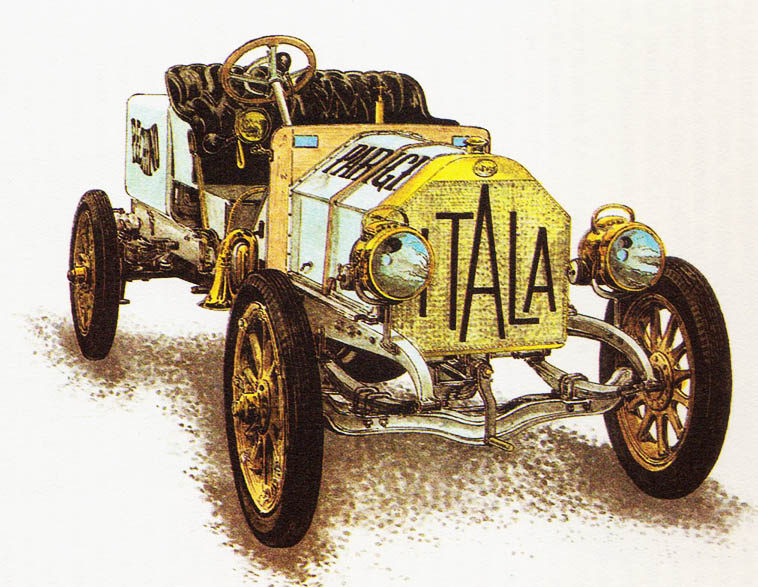ITALIAN 55/45 HP – year 1907
Manufacturer: Itala Fabbrica Cars S. A., Turin, Italy.
The engineer Bigio founded in 1904. in Turin a company, which pioneered the construction of cars for a quarter of a century, and with her sporting successes she made the emerging car industry famous all over the world.
The creator of the first car of this company was the great constructor Matteo Ceirano. His car had a 4-cylinder displacement engine 4502 cm3 i 17,6 kW (24 KM). Matteo Ceirano tried to give his cars a sporty character from the very beginning. As one of the first in the world, Ceirano used a drive shaft instead of belts and chains for power transmission in his car.

The greatest success, which the company Itala entered into the history of cars, there is the famous Beijing - Paris rally. Prince Scipio Borghese with his mechanic Ettore Guizzardi and journalist Luigi Barzini defeated itala in this tough and adventurous rally, lasting from 10 June to 10 of August 1907 r., length route 16000 km, ahead of the second classified car, marki spyker, by twenty days.
Victorious Itala, model 35/45, was a purely serial car. It had a 4-cylinder in-line engine with a cylinder diameter 130 mm and piston stroke 140 mm, which gave a displacement 7433 cm3. Power transmission to the rear axle was via a conical clutch and a 4-speed gearbox via a drive shaft. The front and rear axles were sprung with semi-elliptical leaf springs. Reported fuel consumption: 1 liter per 3 kilometres. Wheels with wooden spokes had Pirelli brand tires. There were auxiliary tanks in the body and no fenders; 300 kg of gasoline and 100 kg of oil in the tanks was enough for Italia only 950 km, therefore, fuel depots were set up along the rally route. Besides, Borghese was carrying a toolbox, a set of spare parts and a dozen tires with tubes.
The historic car is on display today at the Museo dell'Automobile Carlo Biscaretti di Ruffia in Turin.
W 1931 r. the company changed its name to Itala SACA (Anonyma Automobile Construction Company), three years later, however, it ceased to exist.